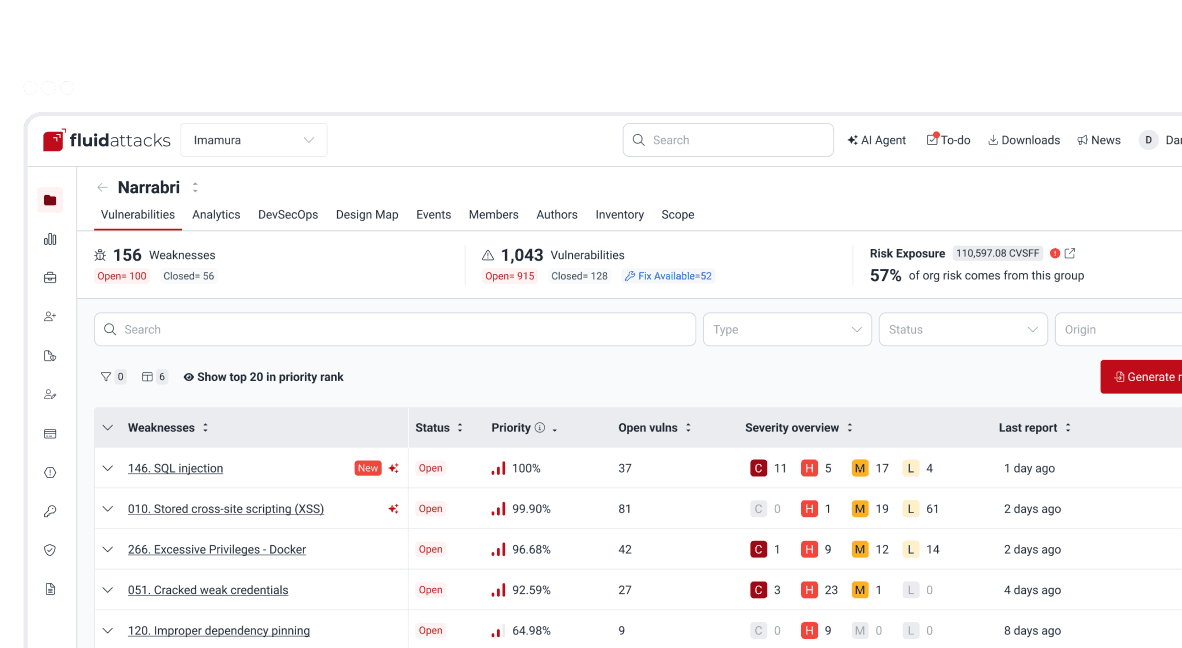Attacks
JBS case: "A cyberattack on one is an attack on us all"


Cybersecurity editor
Updated
Jun 8, 2021
4 min
What happened?
The world’s largest meat producer was attacked by REvil on May 31. After the attack, it had to shut down multiple processing plants around the world. In Canada, the United States, and Australia, some facilities had to close. Especially, "JBS shut down operations at its Dinmore Australia facility — the biggest beef plant in the southern hemisphere."
JBS did not publicly confirm what kind of attack it was. They also refrained from pointing out any responsibility. The world’s press accessed this information thanks to a White House press briefing on June 1. There, Ms. Karine Jean-Pierre, the White House Principal Deputy Press Secretary, revealed that it was a ransomware attack. And, it was Bloomberg who revealed that it was an attack perpetrated by REvil.
At Fluid Attacks, we have already talked about ransomware and Ransomware as a Service (RaaS). So it is enough to summarize that this attack consists of installing “malware that encrypts its target’s systems.” Its purpose is to ask for money to decrypt that data or to prevent it from being published.
Who are those involved?
The victim is JBS, a company that, according to its official website, is the #1 global beef producer, #1 global poultry producer, #2 global pork producer. They also own Primo, "Australia’s largest provider of ham, bacon, salami, and deli meats."
The perpetrator is REvil, "a criminal network of ransomware hackers that first came to prominence in 2019." This group is also known as Sodinokibi and appeared in April 2019. Since then, REvil has incorporated into its criminal portfolio cyberattack methods such as "malicious spam campaigns and RDP attacks,” but always having ransomware as its main attack.
In our last post, we pointed out that the GandCrab gang ended operations after a year of trading with exorbitant profits. Some of the gang members would presumably be linked to REvil, a gang that uses an attack model known as RaaS (see Figure 1). According to the FBI statement they are the main suspect of the JBS cyberattack.

Figure 1. REvil Timeline.
In October 2020, "UNKN", one of the REvil ransomware syndicates, took an interview that was published on the Russian-speaking tech Youtube channel "Russian OSINT." It was posted on the official website of Advanced Intelligence, where it was argued that the name evokes the Resident Evil franchise. In the same interview, REvil claimed to make a revenue of $100M in 2019; a year with the goal of achieving at least $1B, ideally $2B. This is consistent with the figure estimated by the IBM Security X-Force report published in September 2020. According to SecurityIntelligence, in "our conservative estimate for Sodinokibi ransomware profits in 2020 is at least $81 million." Besides, UNKN announced that among the most profitable attack victims the agriculture sector is one of the best future targets. This, of course, did not remain an empty promise.
REvil’s modus operandi
UNKN noted that REvil’s developer team is made up of less than ten individuals. The team is so small precisely because they don’t perpetrate most of their attacks. Since they operate as RaaS, most of their attacks "are conducted by the affiliates or adverts who disseminate the payload and navigate the victim’s networks." They are the ones responsible for infecting the systems of their victims with the virus that "encrypts files after infection and discards a ransom request message."
REvil affiliates often apply "mass-spread attacks using exploit-kits and phishing-campaigns" to distribute their malware. But the most commonly used attack vector, according to UNKN, is brute-force Remote Desktop Protocol (RDP). This is very efficient for criminals, because "brute force attacks are usually automated, so it doesn’t cost the attacker a lot of time or energy."
A worldwide attack
JBS is headquartered in Brazil and has facilities in 20 countries, though fifty percent of its "overall revenue" corresponds to the United States. Therefore, and given the multiple outsourcing processes of the company, the attack made on JBS servers has required an international effort to solve it. In particular, Andre Nogueira, Chief Executive Officer of the Brazilian company, thanked the joint work of the United States, Canada, and Australia.
Today, a cyberattack not only affects the company and its employees but can become a global threat. This case is a magnificent example because it affected countries everywhere: in North America, South America, Oceania, and Europe. Everything happened precisely when the pandemic hit the food sector the hardest. The Food and Agriculture Organization of the United Nations (FAO) published its report on food prices on Tuesday, June 1. The bottom line is that in May food prices have increased so rapidly that they have reached their highest peak since September 2011. If we add to that a cyberattack that paralyzed the meat production company for three days, then the outlook doesn’t seem very encouraging for June.

Figure 2. Graphic by FAO.
The attack was particularly worrying in Australia, where the Minister for Agriculture, Drought, and Emergency Management said on a local radio station that
It's a global attack. And we're working now with international partners around trying to trace and then rectify and obviously prosecute where possible, who has perpetrated this attack.
It was the joint effort of different nations that allowed them to face REvils’s attack. This was also made clear by the FBI in its statement on the matter, in which they stated: "A cyberattack on one is an attack on us all." And Russia’s Deputy Foreign Minister Sergei Ryabkov himself backed the idea of working together with international peers by stating that "Biden administration had been in contact with Moscow to discuss the cyber-attack."
How did the attack end?
Unlike the Colonial Pipeline case or the victims of Babuk locker, JBS has not confirmed the payment of the ransom. On June 3, the company’s CEO said they returned to operation at normal capacity because the attack did not affect either the central system or the backup data. And with this, no information about customers, suppliers, or employees was compromised.
Without doubting the company’s quick reaction, or the efficient procedures carried out by the White House and the FBI, let me say that I am still forming my opinion about this outcome. It would sound logical to stick with the official version and not persist in doubt. However, not since REvil has not given any statement on its dark web, and considering what The Irish Times has published about it:
Ransomware syndicates, as a rule, don't post about attacks when they are in initial negotiations with victims — or if the victims have paid a ransom.
Let me leave the door open to whether JBS finally paid the ransom. It would not be the only company that, without denying having paid the ransom, resumes activities after an attack of this type (see Travelex case).
At Fluid Attacks, we specialize in cybersecurity through pentesting or ethical hacking. For more information, don’t hesitate to contact us!
Get started with Fluid Attacks' SSCS solution right now
Other posts



















